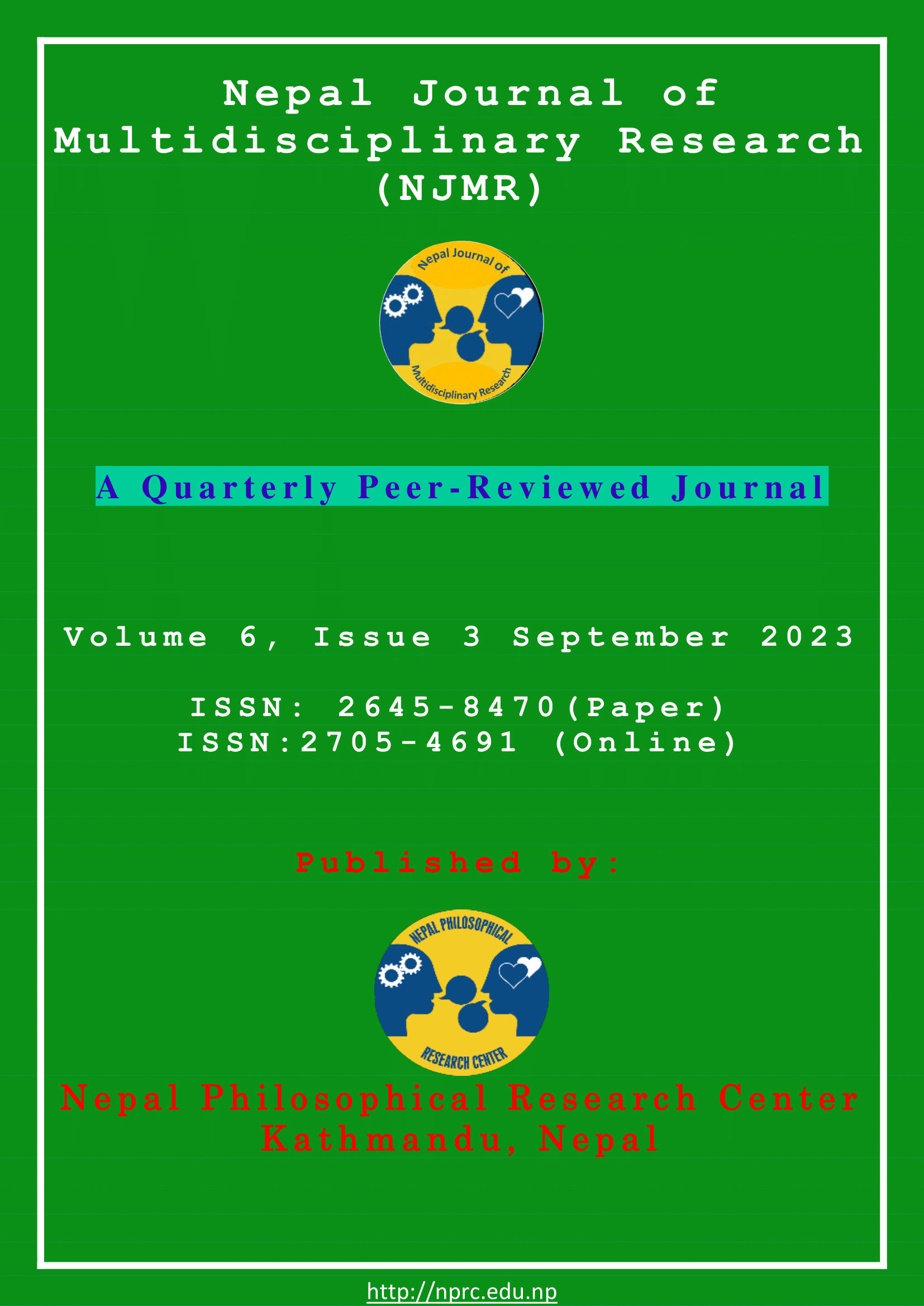Impact of Job Stress on Management Education Teacher’s Job Performance
DOI:
https://doi.org/10.3126/njmr.v6i3.59475Keywords:
Job stress, management colleges, management academics, physical environmentAbstract
This study aimed to examine the influence of job stress on the job performance of management instructors. Exploring the relationships between these workplace stress factors and job performance was also a specific objective. Convenience sampling was utilized for collecting the required information from 220 management education instructors for the study. According to descriptive statistics, management education teachers reported moderate levels of work stress, higher levels of job security stress, and moderate levels of shift work stress. Analysis of correlation revealed that job security and shift work stress were significantly positively correlated with job performance, whereas work stress was weakly and insignificantly negatively correlated. Regression analysis further supported these findings, highlighting the positive influence of job security and shift work stress on job performance. These findings emphasize the significance of addressing job stress factors, particularly job security stress and shift work stress, to improve the job performance of management instructors. Future research could investigate additional factors and interventions to comprehend better and manage occupational stress in this population. The uniqueness of this study stems from its specific focus on management education, investigation of occupational stress factors, and ability to inform tailored interventions that benefit both educational institutions and management educators.
Downloads
Downloads
Published
How to Cite
Issue
Section
License
Copyright (c) 2023 Srijana Khadka, Ajaya Kumar Khadka

This work is licensed under a Creative Commons Attribution-NonCommercial 4.0 International License.
This license enables reusers to distribute, remix, adapt, and build upon the material in any medium or format for noncommercial purposes only, and only so long as attribution is given to the creator.




